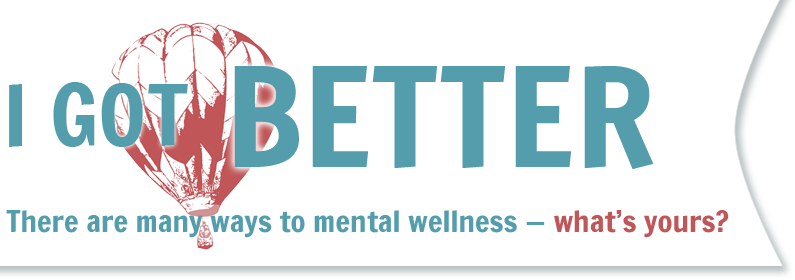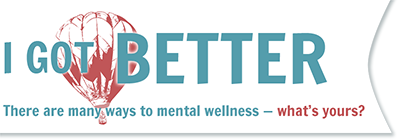Dust Off Your Dreams
By VT
During your mental health care, have you often felt hopeful about your chance of getting better?
No. I was placated and pitied by clinicians. The tacit message was, “You’ll get worse, then you’ll die, probably by your own hand.” Hopeless treatment. I wondered why they continued to help me when they could have been helping someone with better odds.
During your mental health care, have you often felt hopeless about your chance of getting better?
Yes. I lost years of my life, when I could have been writing and working and enjoying my life. I thought they were the professionals and knew best. I was duped.
Has a mental health provider ever told you that you could reach a personal goal despite your psychiatric diagnosis (for example, education, career, independent housing, relationship, children, etc.)?
No. They said I was too sick. They said I looked bad. They said people would know I was sick if I went out to look for work.
Tell us what recovery means to you. How would you define recovery from mental health or emotional problems in your own words?
Recovery means work, and some bucks to make things happen in my life. I don’t need much, as I have learned, but I’m able to help others, and help organizations that have helped me. I feel wanted, needed and loved in my community of peers. We’re a bunch of scrappers, for sure, and we’ve survived to tell the tale of our changes.
If you could send a brief message to someone receiving mental health care today who is feeling hopeless about getting better, what would you say?
Dust off your dreams, start taking some safe chances to change – and direct your life and energy toward your dreams. Don’t believe everything you hear from professionals, you know you best, and your purpose on this planet is unique. We need you to fulfill your purpose. I thought I was a hopeless case, but it’s not true. I love, and I am loved, that is here for you, too.
Can you give examples showing you have gotten better from a mental or emotional problem, such as how you are doing well or accomplishing goals you have chosen?
I’ve returned to work, and use my voice and skills to push for change. Now, my grant and proposal writing, and program development are getting people jobs, housing and the support in the ways they need to heal. I had to grit my teeth, many times, and force myself past a lot of fears, and doubts. “Fake it till you make it” was my silent chant during many situations. At very difficult times, another peer would show up to support me, or I’d get a call or an email. Then, I’d be reminded, just to do my best – I am not alone, even if people try to make me feel that way. I am not alone.

